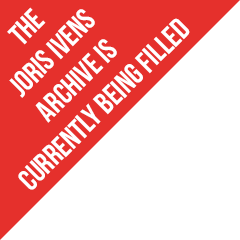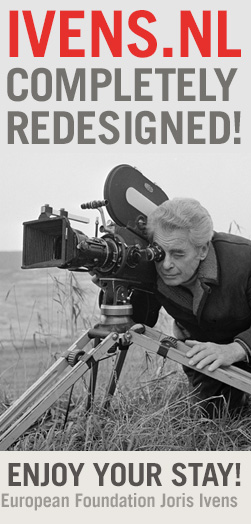

Name curator: Ana Siqueira
Name artist: Edu Yatri Ioschpe
Title of the work you have chosen: Retrato número 1 - O povo acordado e suas mil bandeiras
English title: Portrait Number 1 - An Awakened People and their Thousand Flags
Year of production: 2013
Format: Digital
English subtitles are available in You Tube! Please click on the subtitle screen in the right corner.
About the curator
Name: Ana Siqueira
Function: Curator, translator
What is your main interest: documentary and avant-garde films
Where do you come from/ where do you live: My hometown is Belo Horizonte, Brazil, and I'm currently living in New York, USA
About the film and the filmmakers:
What can you tell about this film? A young Brazilian filmmaker, photographer and educator, Edu Yatri Ioschpe has developed a series named "Portraits" (Retratos, in Portuguese), which is composed by short documentary films proposing to address its subjects in a frontal, stripped off manner, typically giving up any editing or interference past the shooting. Retrato número 1 - O povo acordado e suas mil bandeiras ("Portrait Number 1 - An Awakened People and their Thousand Flags"), the first of the series, is a glimpse of the protests that took over Brazilian streets in June 2013 triggered by the increase of the bus fare. Consisting solely of a five-minute sequence, this seemingly unpretentious film achieves to condense many of the feelings and contradictions of this historical moment in Brazil and its later developments, operating as a sort of a harbinger of the upcoming social and political divide. Amid the large and voracious production of images that took place during the demonstrations, the film cuts out a brief moment off the flow, with no actual start or ending, leaving its completion to the viewer. The result is everything but random and a number of things are there at stake, such as the crisis of political representation, the discontent with the corruption impregnated political class, the clash between generations and classes with hordes of newcomers (frequently born in the already "post-ideological" world), traditional (or not that much) party politics and social movements often refusing the latter and eager for new types of engagement and action. The sequence also anticipates the emergence of a new militant generation willing to found politics anew and, and quite complimentary, the appearance of a raging right wing unembarrassed to show off its intolerance and to protest against the slight loss of historical privileges it has been recently facing. Towards the end of the confrontation pictured in the film, the crowd cries that the people have awoken, referring to the fact that they are back protesting on the streets, thus resoundingly ignoring the historical militancy that they are willing to expel from a place from which it had never completely withdrawn and which is, furthermore, represented in the film by an unmistakably minority: a middle-aged working class nonwhite woman.
How does this relate to the theme ‘politics and poetry’ in your opinion? Resolutely political, the film encounters its poetic force in the esthetics intensity obtained in holding up the camera and facing closely this woman, resisting along with her the oppressive slogans cried by the fierce crowd who remains mainly off-camera but is palpably felt within it. The precarious conditions of filming in the middle of an enormous demonstration, in a rather agile and spontaneous manner, turns out to be also a strength of the film. The filmmaker cannot stand aloof, previously impose a form to the event, there is no film outside of it, and at the same time he remains conscious of the power of the camera mediation, sustaining the shoot, deciding when and where to cut and to focus, choosing his point of view. The form derives from the event and is inextricable from it, but still there is a formal elaboration, the invention of a form that does not preexist the film neither aims to seize its subject but rather to access and somehow synthetize it.
Are politics and poetry (or politics and arts) two separate worlds according to you? Why / why not? Politics and poetry are worlds frequently intertwined but not equivalent, and their relation has been subject to important discussions far beyond the cinema field and prior to its own existence. Joris Ivens is precisely an eminent example of a filmmaker indissociable of both politics and poetry, a director whose work has crossed an impressive number of the 20th centuries main political issues remaining, at the same time, entirely concerned by aesthetics matters.
There are a lot of political tensions and changes in the world right now. Do you (already) notice any changes in the focus and/or ideas and work of artists because of these developments? Do you have examples? I could speak more closely of the Brazilian case which I find to be experiencing a fertile re-emergence of a politically active and diverse cinema, dealing, off the beaten tracks, with a number of aspects of both the country's current situation and history. Indigenous filmmakers have been ahead of an inventive and prolific production, in spite of the oppression they are still subject to (the 30-year-old project Video nas Aldeias being the oldest and forerunner of several others that exist today), there are filmmakers directing powerful works set in their suburban neighborhoods (Adirley Queirós, Affonso Uchôa), directors dealing with middle and upper class issues in a critical and frontal approach (Anna Muylaert, Kleber Mendonça Filho), films directly born of the militancy or coping with the dictatorship history and archives (Anita Leandro, Maria Clara Escobar, Flávia Castro), features dealing with the aggressive development perspective that has been the political credo of the Brazilian governments (Marcelo Pedroso), only to name a few, for this is far from an exhaustive list.
Besides the theme of ‘Politics and poetry’ are there any other comparisons between this artist and Ivens according to you? I would say that Edu Yatri Ioschpe, in his Retrato número 1, shares Ivens understanding that a certain film is necessary at a certain moment, regardless of how the events will later unfold.
